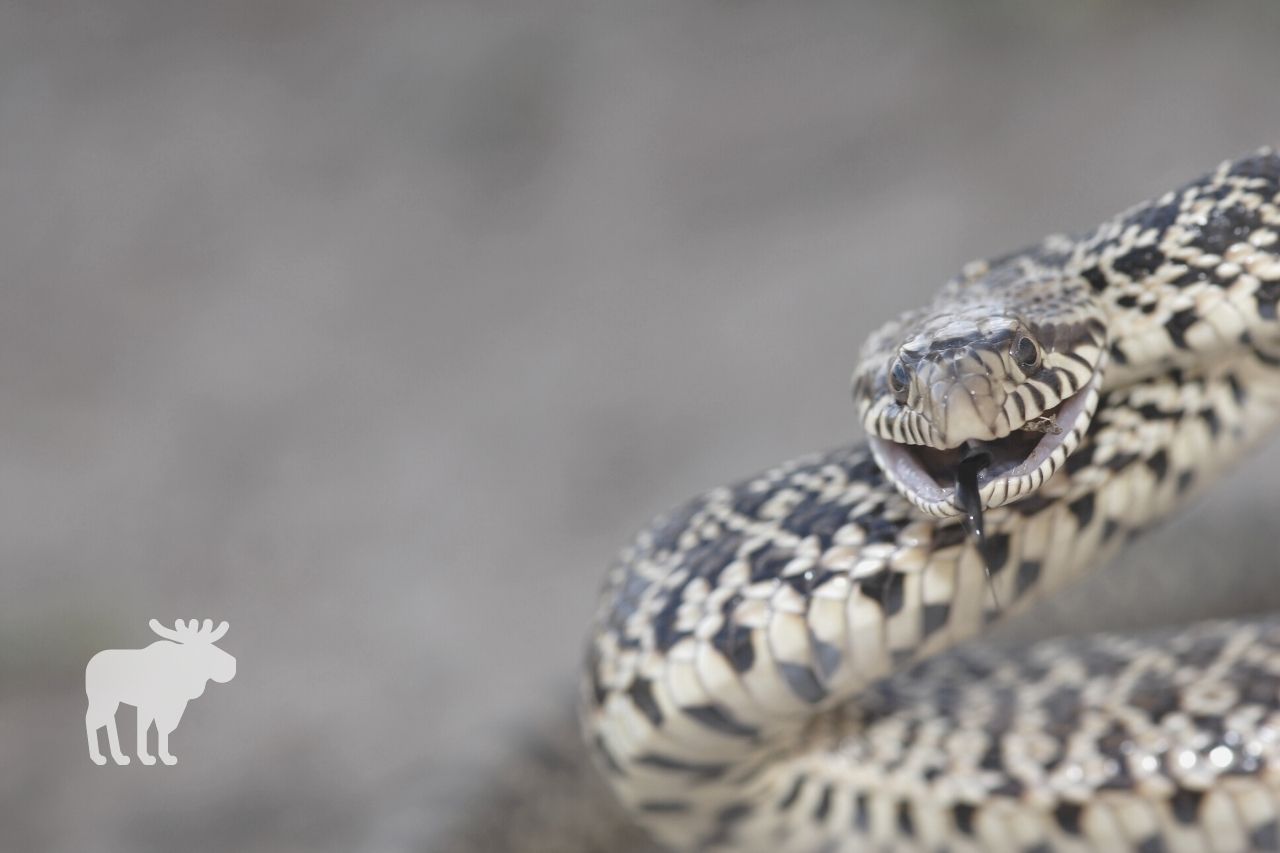You’ve noticed that a bull snake has moved into your yard. Perhaps you’ve even had a close encounter with the snake, and now you’re wondering: what should you do if you ever get bit by it? How bad are bull snake bites? Should you be worried about having a bull snake so close to home? Keep reading! In this article, we’ll answer all of these questions and more.
What You'll Learn Today
How Dangerous are Bull Snakes?

It is fair to say that bull snakes are some of the calmest snakes out there. They aren’t likely to strike unless they feel acutely threatened and can’t get away from whatever is threatening them.
Bull snakes are quite large–they can grow up to 8 feet long in many cases. They are also relatively stout and heavy, though they don’t necessarily look like it because they are so long; but they are strong and muscular, as they kill their prey by constricting it.
Of course, bull snakes are not likely to treat a human as prey–they will more likely strike and attempt to bite than wrap around an arm or leg and attempt to constrict you. Which begs the question: are they venomous?
Luckily, no–bull snakes are nonvenomous snakes.
That said, they are often confused with venomous snakes such as rattlesnakes, and the two kinds of snakes often live in the same areas. It’s easy to confuse bull snakes and rattlers because they behave very similarly when threatened–they will both shake their tails, hiss, coil their bodies, etc, and they look very much alike when doing so.
With that in mind, if you’re bitten by a snake and you’re not sure whether it’s a bull snake or a rattler, it’s important to get to the hospital immediately.
Even if you know it was a bull snake that bit you, it’s still a good idea to get medical attention. Why?
What Happens if You Get Bitten By a Bull Snake?
Bull snakes aren’t venomous, but you may still experience complications if you get bitten by one. This is because their mouths are full of bacteria.
Bull snake bites will not cause acute poisoning, but if left untreated, they may get badly infected. Depending on the exact strains of bacteria present and the severity of the bite, an untreated bull snake bite may eventually lead to blood poisoning, which could spread throughout the body and cause systemic damage.
Again though, bull snake bites don’t usually cause such serious complications. But because of the risk of infection, it’s important to get any snake bite checked out and get proper treatment if necessary so an infection doesn’t develop.
If you are bitten by a bull snake, get to a doctor’s office as soon as possible. The bite will likely be very painful, and the sooner you get treatment, the lower your risk of infection.
Bull snake bites likely won’t require emergency treatment unless the bite punctured an artery or vein and is bleeding severely. It’s still important to take the bite seriously and to get medical treatment–the sooner the better.
What to Do if a Bull Snake Bites You?

Let’s take a look at some tips to help you avoid infection if you are bitten by a bull snake:
- Identify the snake if possible: If you think you might have been bitten by a rattlesnake, it’s more important to get to the hospital than to waste time with identification. But whether bitten by a rattler or a bull snake, if you are able to identify the snake without too much extra time or effort, then doing so will allow the medical staff to provide the proper treatment more quickly.
- Clean the wound: If you know you were bitten by a bull snake and you aren’t able to get to the hospital right away, you can delay or limit your chances of infection by cleaning the bite wound. Wash it with soap and warm water, flush it with alcohol, and treat it with antibiotic ointment if available.
- Apply direct pressure: If the wound is bleeding, it’s okay to allow it to bleed a little bit to remove some of the bacteria. But if it is bleeding heavily or continues to bleed after a few minutes, use a clean cloth or piece of gauze to control the bleeding.
- Keep the wound above your heart: A good general rule with snake bites is to keep them above the level of your heart. When you do this, any poison or bacteria from the bite gets circulated more slowly, which in turn can slow the onset of symptoms or infection.
- Seek medical attention: Again, getting bit by a bull snake is not usually an emergency, but it is still important to be seen by a doctor as soon as possible to limit your chances of developing an infection.
To avoid getting bit in the first place, check out this video to see how a bull snake behaves when it feels threatened.
Conclusion
Bull snakes are nonvenomous, but they do have a lot of bacteria in their mouths that can lead to local infections at the site of the wound, as well as blood poisoning if the infection is left untreated. To avoid experiencing any unpleasant complications, seek medical attention if you have been bitten by a bull snake.
Why are they called Bull snakes?